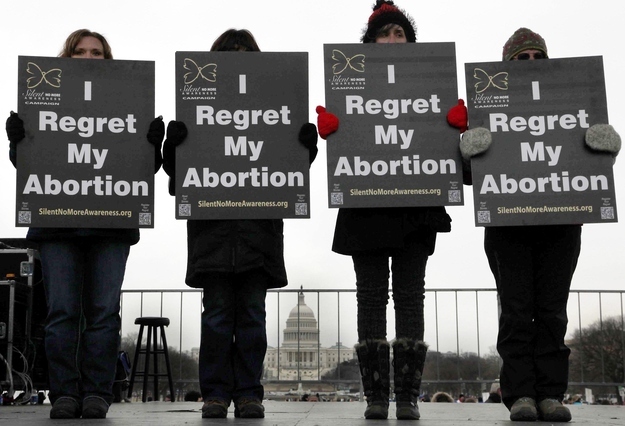Just one study by a group of pro-abortion researchers is being touted as unquestionable proof that women do not regret aborting their unborn babies.
But Dr. Priscilla Coleman, a professor of human development and family studies at Bowling Green State University, said women deserve to know all the facts, and many other studies indicate that women do regret their abortions.
Speaking to the Catholic News Agency, Coleman explained some of the problems with the popular Turnaway Study from the University of California San Francisco.
Highlighted frequently by mainstream news outlets, the study followed women who had abortions compared to women who wanted abortions but were turned away, often because they were too far along in their pregnancies.
The researchers, led by abortion activist Diana Greene Foster, PhD, claimed that 95% of women who had abortions did not regret them five years later. This point received a lot of media attention, and abortion activists frequently cite it.
Coleman, however, said women are not being fully informed.
“There are hundreds of studies and if (women seeking abortions) are only given the results of the Turnaway Study, they’re not being informed, they’re being misled,” she told CNA. “And that’s problematic in my view.”
She said most peer-reviewed scientific studies indicate that abortion regret is a significant risk for many women.
“Not every woman’s going to regret her abortion or have mental health problems, but there’s an increased risk,” Coleman said. “And so that’s something women have a right to know about prior to undergoing the procedure.”
Here’s more from the report:
She told CNA she believes the methodology of the study is “highly problematic.”
“In any other field, you wouldn’t be able to publish this stuff,” Coleman told CNA. She said the “politically correct” conclusions found by the Turnaway Study are why it has received widespread acceptance.
Follow LifeNews.com on Instagram for pro-life pictures and videos.
Others have made similar observations. A British science magazine, New Scientist, also noted that the Turnaway Study may be “biased” because only 38% of the women asked to participate in the study actually did, and the women who dropped out or did not participate may have been the ones who felt more negatively about their abortions.
Contrary to what the study claims, abortion regret is not rare. However, sometimes it takes years – even decades – before a woman begins coming to terms with her unborn baby’s abortion death.
A British survey in 2006 found that 82% of respondents said they deeply regretted their abortions. Of the 248 women who participated, only 26 said they had few or no regrets.
Numerous studies also link abortions to an increased risk of mental health problems, including a 2009 study from the University of Otago in New Zealand. More than 85% of women reported negative reactions to their abortions including sorrow, sadness, guilt, regret, grief and disappointment, according to the study.
Other studies indicate that post-abortive women are at a higher risk of suicide. One study published in the British Medical Journal in 2013 found that women who had abortions were seven times more likely to commit suicide than women who gave birth.
Lead author Professor David Fergusson, who described himself as a pro-choice atheist, also led the research team in a 2008 study that concluded that women who continued an unwanted or mistimed pregnancy did not experience a significant increase in mental health problems. Further, having an abortion did not reduce their mental health risks.
A 2011 study in the British Journal of Psychiatry found that 10% of mental health problems among women, including 35% of suicidal behaviors, may be attributable to abortion. Women who had abortions were 81% more likely to experience mental health problems compared to all other control groups, and 55% more likely to have problems compared to women who delivered an unplanned or unwanted pregnancy.
The increased risk of suicide following abortion has been recognized in Australia as well. A 2013 Queensland Maternal and Perinatal Quality Council report noted: “There appears to be a significant worldwide risk of maternal suicide following termination of pregnancy and, in fact, a higher risk than that following term delivery. The potential for depression and other mental health issues at this time needs to be better appreciated.”
This research backs up the stories of countless mothers who deeply regret aborting their children. Some of these women are now pro-life leaders, hoping to help spare other mothers and their babies from similar pain and death.








